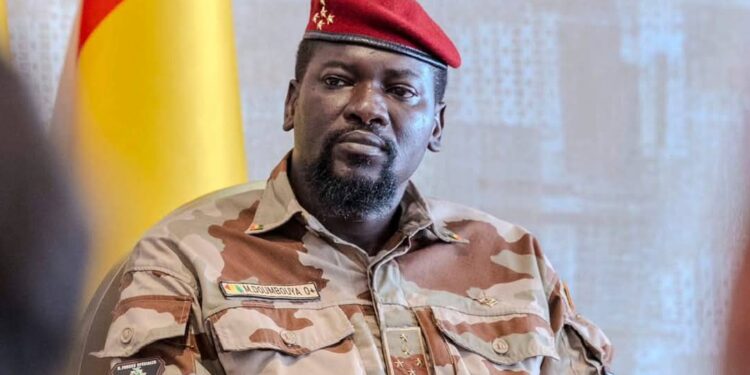
Interim President of Guinea Mamady Doumbouya Credit Image:The Heritage Times
(The Post News) – President Mamady Doumbouya of Guinea has taken a significant step toward press freedom in Guinea by lifting long-standing media restrictions that had blocked coverage of opposition parties. For years, the government enforced strict Guinea media restrictions, limiting journalists’ ability to report on political groups and severely curbing public access to information.
This move signals a shift toward greater transparency and a more open media environment ahead of the upcoming constitutional referendum in Guinea.
Press Freedom Ahead of Referendum
On Monday, the head of its communications authority announced that media outlets could cover all political entities, provided they continue to follow election campaign rules. This decision comes as the country prepares for the constitutional referendum scheduled for September 21, a vote widely regarded as crucial for transitioning back to civilian governance after the 2021 military coup that ousted President Alpha Conde.
Observers say that easing Guinea media restrictions allows journalists to report on opposition parties that had been silenced, signaling progress for press freedom in Guinea. While the authorities maintain rules on campaign conduct to prevent misinformation, the change opens space for more open debate and broader political discourse.
Independent reporting can now highlight perspectives that were previously suppressed, helping citizens make more informed decisions ahead of the constitutional referendum.
Ongoing Challenges for Media Rights
Despite these improvements, full press freedom in Guinea is not yet realized. Critics point out that the military continues to hold substantial control over political processes and has suspended several opposition parties limiting their ability to engage in campaigns and public debate.
These actions underscore the persistent tension between political power and journalistic independence, showing that the easing of media restrictions is only a partial step toward a fully free press. International organizations and press advocates have welcomed its move as a positive step for press freedom in the country, emphasizing that independent reporting is critical for a fair constitutional referendum.
Analysts note that allowing journalists to work without undue interference strengthens transparency, accountability, and public engagement, key pillars for restoring civilian governance. By allowing coverage of all political factions, it reinforces press freedom in the country during a period of heightened political sensitivity. Journalists can now report on previously silenced opposition parties, contributing to a more informed electorate and fostering a culture of openness and dialogue.
These reforms ease media restrictions, creating opportunities for citizens to access diverse viewpoints and enhancing the role of the press as a watchdog. While challenges remain, including the military’s continued influence over political life, this move represents a notable advancement for press freedom in Guinea.
It strengthens the media environment as the country approaches the constitutional referendum in the country, giving journalists and citizens alike a greater voice in shaping the nation’s future. Experts note that expanding media access during this period is crucial, as it allows citizens to engage with a broader range of political perspectives, including those of previously silenced opposition parties in Guinea.
By fostering informed debate, it can gradually build trust in both the media and the electoral process. Moreover, President Mamady Doumbouya’s decision to ease restrictions could set a precedent for future administrations, signaling that independent reporting and accountability are essential to democratic stability.
If implemented effectively, these reforms may help Guinea navigate the delicate transition from military oversight to civilian governance while reinforcing the principles of transparency, inclusivity, and press freedom in Guinea.
International organizations and press freedom advocates have widely welcomed Guinea’s move to lift media restrictions, emphasizing that it represents a crucial step toward greater transparency and accountability. By allowing journalists to report freely on all political parties, including previously suspended opposition parties in Guinea, the authorities create space for informed public debate.
Observers note that such reforms are essential ahead of the constitutional referendum in Guinea, as citizens can now access diverse viewpoints and critically engage with political developments. Experts argue that this approach strengthens democratic processes and underscores the importance of protecting press freedom in Guinea during politically sensitive periods.



